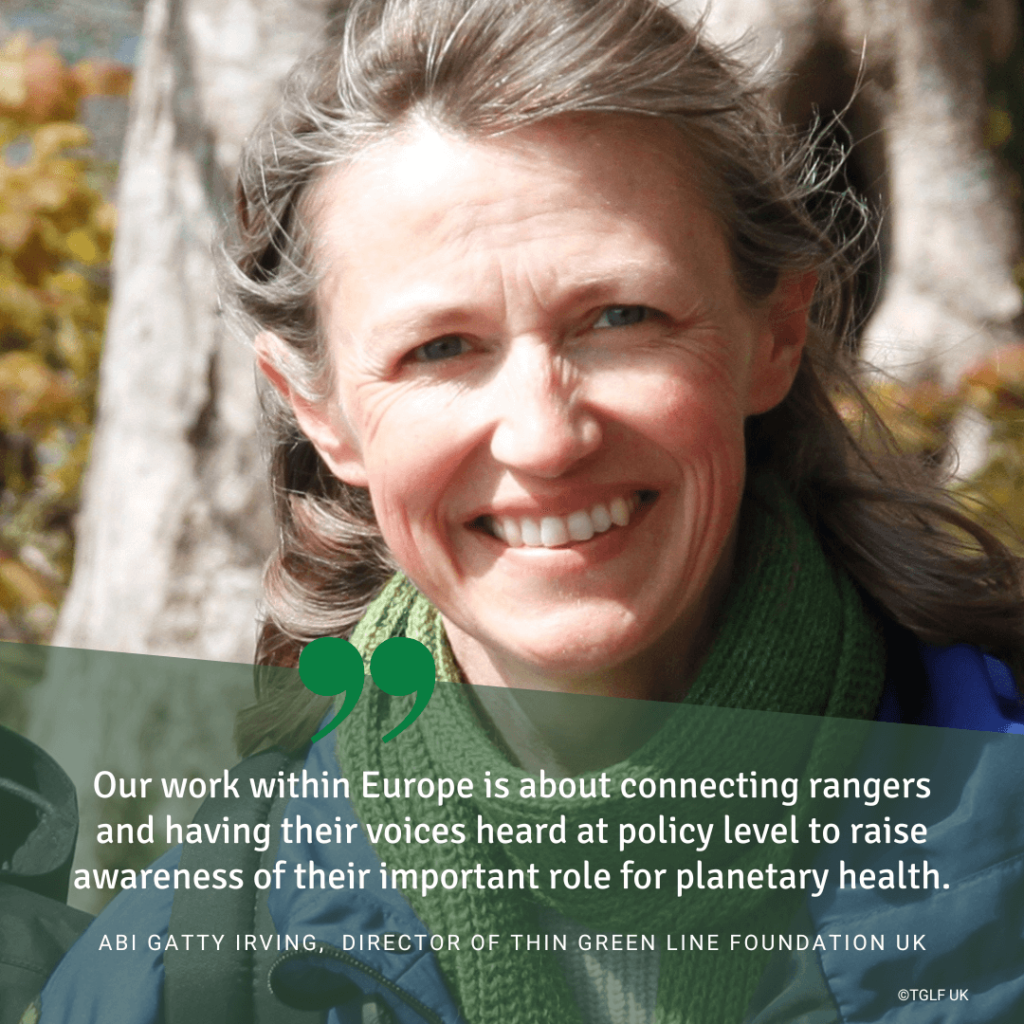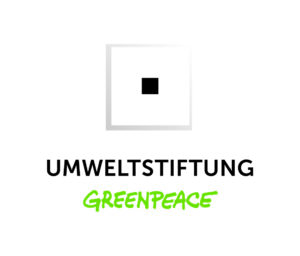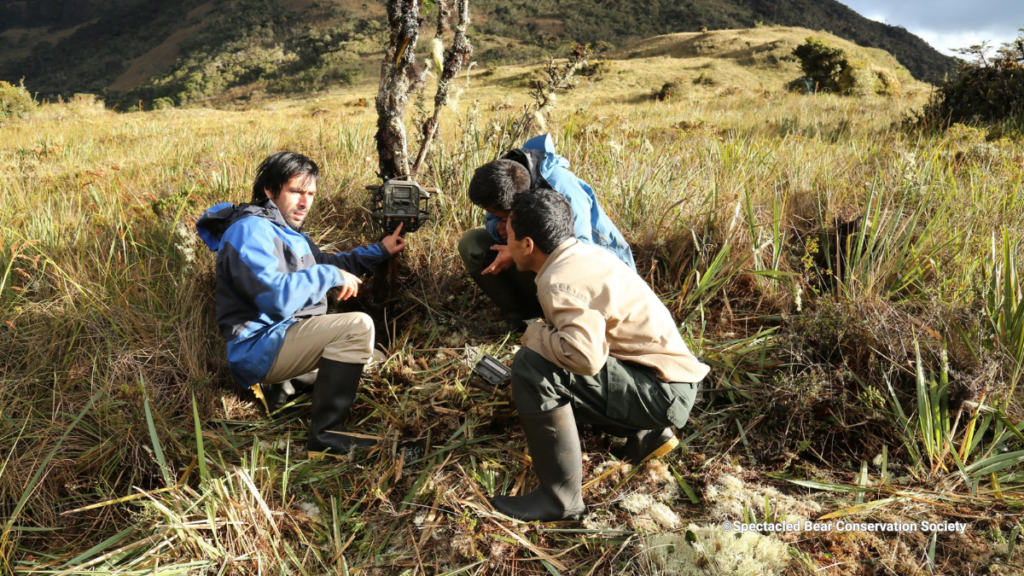Thin Green Line Foundation UK was established in 2019, following the Thin Green Line Foundation Australia founded in 2007. The organisation supports rangers on the frontline, providing financial support, training and equipment, but also aims to raise awareness for the important work of rangers for biodiversity conservation and sustainable development. We talked to Executive Director Abi Gatty Irving about the foundation’s role in Europe and its work for rangers.
Why was the Thin Green Line Foundation UK set up?
We are UK in name, but in practice we are Thin Green Line Foundation (TGLF) for Europe and aim to raise funds and awareness in Europe and to link European rangers to the worldwide network of rangers in connection with European Ranger Federation and other European conservation organisations. And as TGLF Australia is located on the opposite side of the globe, it made sense to have a TGLF in Europe; as two independent but sister charities with the same mission and working alongside each other on projects and on our own projects for rangers in different parts of the world.

Your organisation already supported the European Ranger Congress and our latest training on the usage of drones for rangers. What other projects are you currently running?
Due to limited funding we have to concentrate on the most urgent needs. Usually that is Fallen Ranger Funds to support the families of rangers who died in the line of duty, training and equipment in regions where rangers’ lives are at risk. For example, rangers in Upemba, Democratic Republic of Congo (DRC), work in a region that has no radio or phone signal. They had no way of communicating with each other, which is very dangerous: Six rangers have died there since November 2021. So we sent GPS communications equipment to keep them safer and improve operations. Whereas in Europe our work is more about connecting rangers and sharing knowledge, but also to have rangers’ voices heard when it comes to policy level. We focus on raising awareness of their importance as key workers in the world’s big crises of biodiversity loss and climate change.
How can Europe’s rangers best get involved?
It is great when helping each other comes with this connection of rangers: Swiss Junior Rangers for example raised funds for rangers in DRC, but there are also several initiatives for less well funded colleagues among rangers in Europe. We are very happy helping such European initiatives with fundraising. And of course it is amazing when European rangers approach us to support our ongoing projects – be it that they organise a fundraising walk or an online event. To stay up to date on our current projects the best thing to do is to follow us on Instagram, Twitter, Facebook, our Website with its Blog and to sign up for our newsletter on the Website.
GUEST ARTICLE: SUSTAINABILITY REQUIRES INVESTING IN RANGERS
To meet global commitments on climate and biodiversity, we need to invest more in rangers. This is what Marianne Kettunen writes in our guest article. The trustee of Thin Green Line Foundation UK and expert at the World Commission on Protected Areas (WCPA) of IUCN describes the central role of rangers in achieving global conservation goals and provides starting points on how they can be better supported.
READ GUEST ARTICLE
How do you see the role of Europe’s rangers in the international network?
I think it’s important to raise the profile of European rangers. When it comes to rangers, there is often the public image of a male ranger in Africa protecting Rhinos. We are trying to broaden that out to make people realise the diversity of rangers and their varied important roles. Rangers’ tasks can range from biodiversity protection and regeneration to firefighting and educational tasks. And also in Europe they can sometimes put their lives at risk by doing their work.


What is the most recent success for you?
The key to our projects is collaboration, linking with other NGOs and trusted partners on the ground. In the case of Upemba for example we work with Forgotten Parks Foundation (FPF). The rangers there are very poorly paid by the government and often lack basic equipment and training. FPF supplements the rangers’ incomes and provides equipment and training. When they had a recent large but temporary shortfall in funding the need was too great for us to cover alone, so we helped link them with other emergency sources of funding which got them through the crisis. It can be an advantage to be small; we can be flexible and open to all kinds of cooperation to get that need met. Our most recent role at Upemba was setting them up with LEAD Ranger Training, a joint initiative with International Anti-Poaching Foundation, Ranger Campus and Thin Green Line Foundation. As a sustainable training model, it provides training to a network of indigenous rangers so that they themselves can be the trainers of the future.
For further information on Thin Green Line Foundation UK, visit https://thingreenline.org.uk/ or contact info@thingreenline.org.uk.
This content is sponsored by


